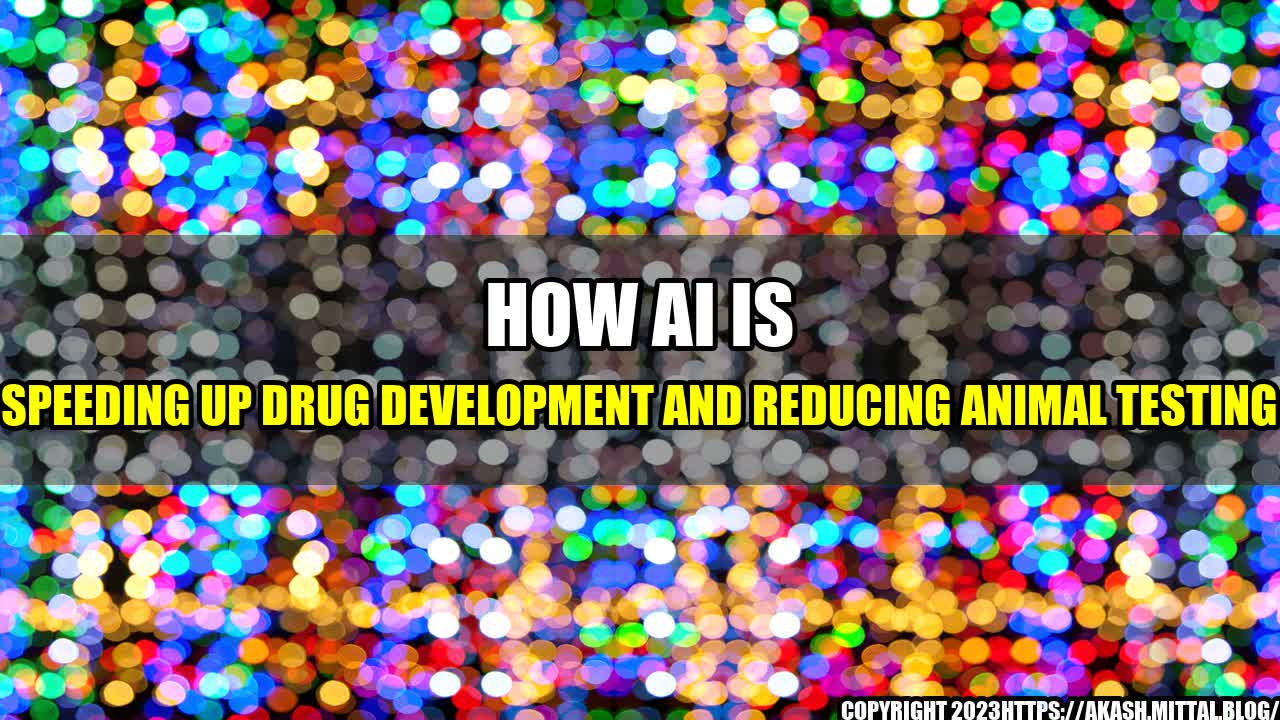Have you ever wondered how drugs are developed? The answer is long and complicated, involving years of research, clinical trials, and regulatory approval. But thanks to advances in artificial intelligence (AI), the drug development process is becoming faster, more efficient, and more humane.
Animal testing has long been a controversial practice in drug development, with many people rightly questioning the morality of using animals for human benefit. But AI is changing this by enabling researchers to simulate the effects of drugs on cells, tissues, and whole organisms without the need for animal testing. This not only reduces our reliance on animals but also speeds up the drug development process as a whole.
How AI is Disrupting Drug Development
AI is revolutionizing the drug development process in several ways:
- Target identification: Identifying the target molecule that a drug needs to interact with is a key step in drug development. AI algorithms can analyze vast amounts of data from various sources, such as genetic databases and scientific literature, to identify potential drug targets more quickly and accurately than humans can.
- Molecular design: Once a drug target has been identified, AI can help design molecules that have the best chance of interacting with that target. This involves using machine learning algorithms to predict the chemical properties of different molecules and select the most promising candidates for synthesis and testing.
- Drug screening: Traditionally, drug screening involves testing thousands of compounds in the lab to see which ones interact with the target molecule in the desired way. But with the power of AI, researchers can now predict how different molecules will interact with the target molecule using computer simulations, saving time and money.
- Drug repurposing: AI can also help identify existing drugs that may be effective against new or different diseases than they were originally intended for. By analyzing data from patient records and other sources, AI algorithms can identify patterns and relationships that human researchers might miss, leading to new treatment options for patients.
of AI in Drug Development
AI is already being used in drug development across the world, with some impressive results:

Image source: Pixabay
- Insilico Medicine: This company uses AI to develop drugs for diseases such as cancer, Alzheimer's, and Parkinson's. They have developed an AI platform called GENTRL that can design molecules that are up to three times more potent than existing drugs, and in a fraction of the time.
- BenevolentAI: This UK-based startup uses AI to discover new drug targets and repurpose existing drugs for new uses. They have already identified a potential new treatment for a rare type of muscular dystrophy using AI.
- Atomwise: This company uses AI to screen millions of compounds for potential drug candidates, which can then be synthesized and tested in the lab. They have already identified a potential drug for Ebola that is now being tested in clinical trials.
The Future of Drug Development with AI
The potential benefits of using AI in drug development are enormous, not just for researchers but also for patients and society as a whole. Here are three key takeaways:
- Faster drug development: With the help of AI, the drug development process is becoming faster and more efficient, potentially leading to faster approval of life-saving drugs.
- Reduced reliance on animal testing: By simulating the effects of drugs on cells and tissues, AI is reducing our reliance on animal testing, which is good news for animals and for researchers who would rather not use them.
- New treatment options: AI is helping researchers repurpose existing drugs and discover new drug targets that might have gone unnoticed otherwise, potentially leading to new treatments for a range of diseases.
This is an exciting time for the field of drug development, and AI is an exciting aspect of it. As the technology continues to evolve, we can only imagine what new innovations and discoveries will emerge.



Curated by Team Akash.Mittal.Blog
Share on Twitter Share on LinkedIn